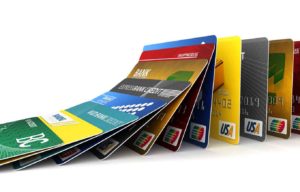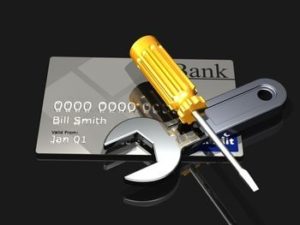Bankruptcy Pros and Cons
When you’re in financial distress, it can sometimes seem like there is no way out. There are all different kinds of reasons people find themselves flailing in a sea of debt. Whatever the reason, when creditors are circling sharks, bankruptcy may be the lifeboat you need. Over 12,000 Wisconsinites have filed bankruptcy so far this year (January 1 through September 30, 2019). In the Eastern District of Wisconsin (including Milwaukee and its surrounding areas), 9,466 bankruptcy cases have been recorded
(www.wiwb.ucourts.gov, www.wieb.uscourts.gov). So bankruptcy is neither shameful nor unusual.
Filing for bankruptcy is a serious decision, though. You want to have all the information and understand all the implications before proceeding. Let’s take a look at some of the bankruptcy pros and cons.
PRO: Bankruptcy Stops All Collection Activities By Any And All Creditors. When your debt is crippling, it comes with collection agents working relentlessly to extract money you don’t have. Letters that threaten dire consequences, phone calls that badger you at all times of day or night, these tactics can make you feel hunted, haunted, or both. The moment you file bankruptcy, all collection activities must stop, including any garnishment, foreclosure or repossession.
PRO: Bankruptcy Eliminates or Decreases Debt. With bankruptcy, all your unsecured debt is either eliminated or reduced. Most people file Chapter 7 Bankruptcy, and with that type, you don’t need to worry about any sort of repayment. “The entire process takes from 3-6 months, after which your debt is cleared” (David Chandler, https://www.consumeraffairs.com/finance/bankruptcy_02.html). Some people choose Chapter 13 Bankruptcy, and with that type, you do repay a portion of your debts, determined with the court. This process lasts from 3 to 5 years. In both cases, your debts are cleared, once and for all.
PRO: Bankruptcy Avoids Draining Resources. The bill collectors don’t care where you get the money to pay them, and you may be tempted to take it from your retirement funds, social security or other protected assets. When you declare bankruptcy, not all your assets are liable for your debt repayment. Social security and retirement funds are protected. Filing bankruptcy allows you to retain those protected assets while getting rid of the debt.
CON: Bankruptcy Means No Credit Cards Until You Receive Your Bankruptcy Discharge. While bankruptcy rids you of your debt, it also rids you of your credit cards. Not having credit cards makes some things more difficult. For instance, car rental agencies usually require credit cards; hotels often do too. It also means that unexpected large expenses cannot be paid with a credit card; car repairs may need to wait. Once you receive your bankruptcy discharge you can apply for credit, including credit cards and you should receive that credit or credit card.
CON: Bankruptcy Complicates Credit/Loan Prospects. Bankruptcy remains on your credit record for 10 years, and it can make getting an auto loan or other kind of loan more difficult, but not impossible. And while you may receive credit card offers shortly after declaring bankruptcy, they often come with high interest rates. Naturally, your credit rating will drop, but will improve and be back to normal about 1 year after bankruptcy discharge. Professional advice can assist in charting a positive strategy and ways to improve your credit score.
CON: Bankruptcy Becomes Public Record. When you file for bankruptcy, it becomes a matter of public record, and anyone can request those records. Except it will not appear on the State of Wisconsin, CCAP website, which list case filed in Wisconsin.
A Wisconsin legal team that specializes in Chapter 7 and Chapter 13 bankruptcy proceedings can help you make the right decision for you and your family. If you need help with dealing with debt in Wisconsin, Burr Law Office can provide you with practical solutions that suit your needs. We can help you make the best possible decisions for yourself, your family and your future. Call us today at (262) 827-0375 to schedule a free bankruptcy evaluation. At Burr Law Office, we are here to help.

 For many individuals, obtaining and using a credit card is one of the easiest ways to build a strong credit rating—however, this is only true if you understand how to use your credit card properly. Continue reading to learn which types of charges should be avoided when it comes to your credit card.
For many individuals, obtaining and using a credit card is one of the easiest ways to build a strong credit rating—however, this is only true if you understand how to use your credit card properly. Continue reading to learn which types of charges should be avoided when it comes to your credit card. The process of filing is extremely stressful. After you declare bankruptcy in Milwaukee, there are several very important things you should do to continue on the path to financial freedom. It is crucial that you pay close attention to a number of details so as to protect yourself from problems down the road. Here are a few tips to help you rebuild credit.
The process of filing is extremely stressful. After you declare bankruptcy in Milwaukee, there are several very important things you should do to continue on the path to financial freedom. It is crucial that you pay close attention to a number of details so as to protect yourself from problems down the road. Here are a few tips to help you rebuild credit.
